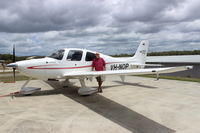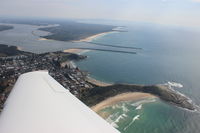Urology Down Under - ein Blick über den Tellerand
Mit dem Flugzeug zur Sprechstunde, 330 Urologen für 24 Millionen Einwohner: Im Interview mit der Pressestelle von DGU und BvDU berichtet Dr. Philip McDougall, Urologe aus Southport an der Gold Coast in Queensland, über die urologische Versorgung in Australien.
1. Dr. McDougall, more than 5300 urologists, in hospital or independent at their own doctor’s practice, are working in Germany - among them only 12 percent women: How is the situation in Australia?
Australia is a vast country, but with a population of only about 24 million people. The majority live near the coasts, with only small populations throughout the centre. There are 330 practising Urologists in Australia, of which 31 are women. We currently are training 118 trainees, of whom 30 are women.
2. How do you practise in Southport, Gold Coast - in a clinic, medical center?
I have been practising at Southport for over 30 years. I was in a private single doctor practice all this time, albeit with support of 3 colleagues, all of whom also practice solo. We also have sessions at the local Gold Coast Hospital where non-paying patients are managed. When I started practice in 1977, there were only 2 Urologists. There are now 9, all practising in the same way, with 5 at the northern end of the Gold Coast, and 4 at the southern end. There is occasional interaction between the two groups. There are 3 private and 2 public hospitals on the Gold Coast, catering for a permanent population of more than 650,000 people. I retired from private practice 3 years ago, but still have a commitment to the public hospital.
3. Living in a wonderful tourist area, do you have many tourists in your consultation-hour?
Tourists here make up a tiny percentage of our workload. We manage the emergencies, then return them to their home, and their local Urologist continues their care.
4. How does urology care work out of the metropolises in such a spacious country like Australia?
Very little Urology takes place away from the coast. There are Urologists in a few country areas, namely Toowoomba in Queensland, Lismore, Dubbo and Orange in NSW, and Traralgon, Bendigo and Ballarat in Victoria.
I have, for the past 10 years, visited two rural communities, Kingaroy and Roma in Queensland, to provide a Urological service on a monthly basis, and continue to do so. To my knowledge, I am alone in this endeavour. In part, this allows me to indulge my passion for light aircraft flying, but also to help disadvantaged rural people.
5. What relevance has robotic surgery in urology in Australia?
Robotic surgery is on the increase in this country. Despite the fact that there is still no evidence of better outcomes, the "marketeers" have had a field day, and the proliferation of machines is incredible. "If you have one, I'll have to have one, because that is what the patients are led to believe is better". There are 4 machines in Queensland (population about 3 million) and about 14 throughout the country. These machines are costly, and almost exclusively limited to the private sector. I expect the numbers will increase, with more Urologists generally doing fewer cases. Radical prostatectomy is however, the favourite operation taught to trainees, who will want to continue the trend that currently exists here.
6. Early detection of prostate cancer based on PSA is hotly debated. Overdiagnosis and overtreatment are often publicly criticized in Germany, leaving many men worried. The DGU opposes mass screening and instead pleads in favour of differentiated use of the test. The aim is to have men educate themselves and make an individual decision with the assistance of their doctor on weather or not to participate in the PSA-test. What is the discussion in Australia like at the moment?
The current position of USANZ in relation to PSA testing is available on the website www.usanz.org.au. This was formulated in 2009, and is currently being revisited in light of recent discussions with AUA, EUA and BAUS.
There are plenty of people promoting screening (Urologists and patients), but in recent times, there would seem to be a trend towards informed screening and active surveillance. However, there are many of my colleagues who regard prostate cancer, not as a disease, but as a business, and radical prostatectomy is still an overused form of treatment in this country.
7. Do Australian men live healthy and visit the doctor regularly?
If they do - please, let us know how you achieved it.
Australian men are probably no different to men everywhere. All spectrums are in evidence. Some insist on regular screening, but without hard evidence, I would consider them to be the minority. There are groups who actively promote mens health with some degree of success.
8. Australian urologists are organized in the Urological Society of Australia and New Zealand (USANZ). The Next Scientific Meeting will be in your neighborhood in March 2014 in Brisbane; SIU World Meeting will be 2015 in Melbourne: Have you ever thought of also visiting a congress in Europe?
The USANZ ASM is in Brisbane in March 2014. This is an annual meeting held in a different state each year. In the past, I have travelled overseas to meetings such as the AUA, BAUS, EUA and have visited several Urological centres of excellence. I have been to Mainz in Germany with Prof Hohenfellner and Peter Alken. Being from a small country, Australian Urologists travel extensively to update and maintain standards (and to holiday in foreign countries!). I am now at a time in my professional life where, apart from attending local meetings within Australia, I am trying to forget, not learn more!
Interview: DGU-Pressestelle



